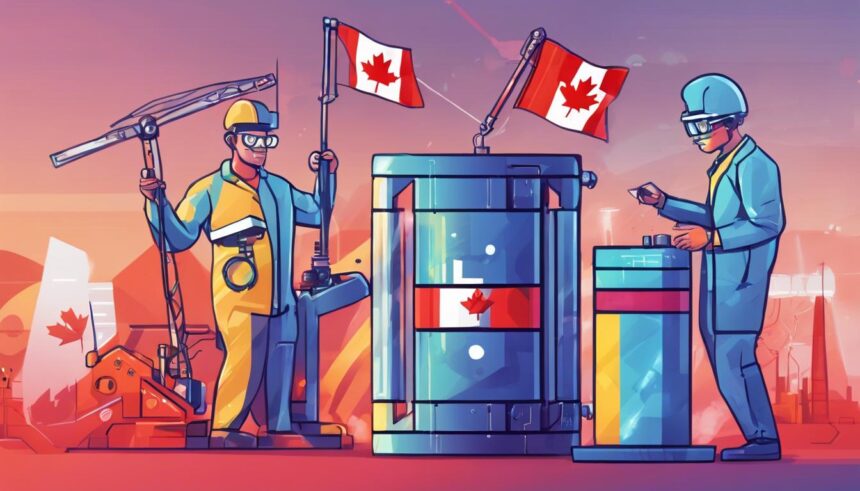In a significant leap towards renewable energy technologies, E3 Lithium aligns with McMaster University and the University of Alberta, targeting groundbreaking enhancements in lithium extraction methods and lithium-ion battery performance, funded by the Alliance Missions Grants for Critical Minerals Research.
In an innovative step towards enhancing lithium extraction and battery performance, E3 Lithium, a prominent Canadian lithium development company, has partnered with two leading research institutions—McMaster University and the University of Alberta. This collaboration is notably funded by the Alliance Missions Grants for Critical Minerals Research, a prestigious initiative backed by the Natural Sciences and Engineering Research Council of Canada (NSERC).
The projects aim to pioneer advancements in lithium production methodologies and the development of lithium-ion batteries, representing a significant leap forward in renewable energy technologies. These initiatives are not just academic exercises but are crucial for Canada’s competitive advantage in the global shift towards sustainable energy sources.
McMaster University is embarking on a project to refine brine recovery mechanisms, focusing on sustaining and enhancing lithium concentrations from subsurface brine resources. This research could dramatically improve the economic viability and sustainability of lithium production in the Leduc Reservoir, a key area for E3 Lithium’s operations. The company is not only supplying essential brine for experimental purposes but is also sharing valuable aquifer characteristic data to help design, validate, and benchmark the experimental and numerical models for lithium flow and transport.
On the other hand, the University of Alberta is concentrating on leveraging natural graphite to improve the performance of fast-charging lithium-ion batteries. This project aims to deepen the understanding of graphite’s role in these batteries and enhance its electrochemical properties, thereby advancing the development of high-quality, battery-grade materials. E3 Lithium supports this initiative by providing technical assistance for efficient lithium separation techniques during graphite anode recycling and wastewater treatment processes.
Chris Doornbos, President and CEO of E3 Lithium, expressed enthusiasm for these collaborations, highlighting the potential for these projects to bolster Canada’s stance as a leader in renewable energy transition. The integration of research outcomes into E3 Lithium’s development and commercialization plans promises to propel the company and Canada ahead in the lithium production and battery technology domain.
These collaborations underscore the importance of academic-industrial partnerships in driving innovation and sustainability in critical minerals and energy sectors. As E3 Lithium endeavors to produce high-purity, battery-grade lithium products, the successful execution of these research projects could significantly enhance the efficiency and environmental sustainability of lithium extraction and battery production processes.
Fundamentally, these initiatives reflect a broader commitment to advancing renewable energy technologies, securing Canada’s energy future, and fostering a sustainable and economically viable lithium industry. Through concerted efforts in research and development, Canada is poised to become a pivotal player in the global push towards renewable energy sources, consolidating its position at the forefront of the electrical revolution.





